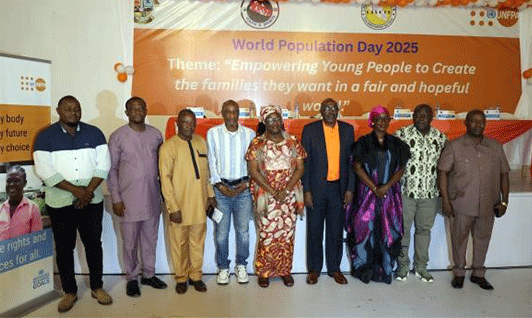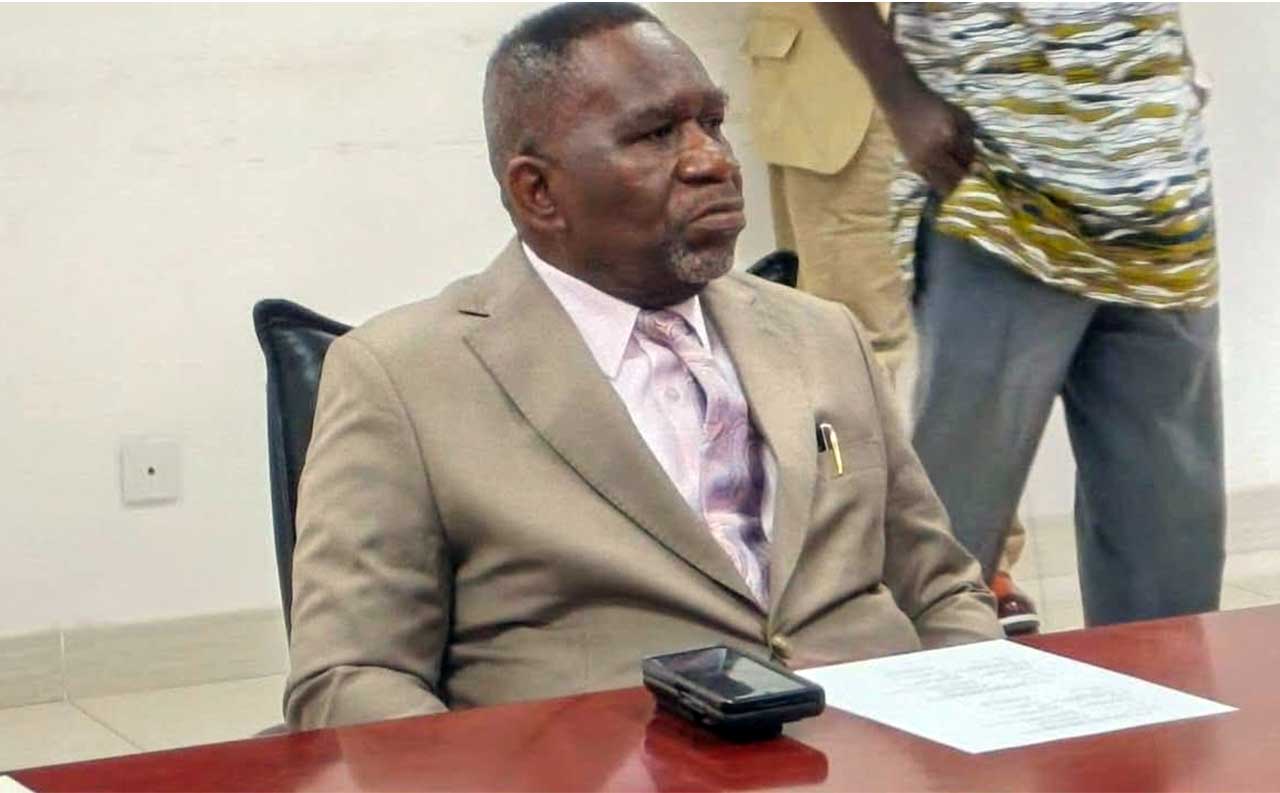In commemoration of World Population Day, the United Nations Population Funds (UNFPA) has estimated 2025 global population at 8.2 billion (8,231,613,700). The UNFPA statistics revealed that the population of the world is projected to increase to 8.3 billion, 8.36 billion, and 8.43 billion in 2026, 2027, and 2028 respectively, naming India (1.42billion), China (1.41 billion) and USA (342.03 million) as the most populated countries.
The celebration took place in Paynesville on Friday, July 11, 2025, under the theme: “Empowering young people to create the families they want in a fair and hopeful world,” and brought together government officials, international and local partners, students and ordinary citizens.
Serving as a guest speaker, Grand Cape Mount County Senator Dabah Varpilah narrated that despite the world’s current challenges, it is one where higher shares of people are educated and live healthier lives than at any previous point in history.
Senator Varpilah, also the Chair on the Senate Committee on Health, said that societies that invest in their people’s rights and choices have consistently proven that this is the road to the prosperity and peace that everyone wants and deserves. “This year, 2025, the world population hits 8.2 billion people. This milestone will attract much attention and debate, and likely scaremongering over “too many” people. That would be a mistake,” she stated.
The Grand Cape Mount Senator noted that focusing only on population numbers and growth rates often leads to coercive and counterproductive measures and the erosion of human rights, for example, to women being pressured to have children or prevented from doing so. She said it can deepen already acute inequalities, such as through policies shutting down reproductive health care or denying adequate pensions for the elderly, further marginalizing the most disenfranchised.
For her part, UNFPA Executive Director, Dr. Natalia Kanem, revealed that they surveyed 14,000 people around the world and found that 1 in 5 people under age 50 expect to end up with a family size different from their ideal, and most of them expect they will have fewer children than desired, stating, over the age 50, almost a third of respondents said they’d had fewer children than they wanted.
She added that intergenerational understanding is crucial to build trust and strengthen solidarity and fairness across generations. According to her, only shared solutions, grounded in human rights, will meet the demands of a demographically diverse world, adding that ensuring access to sexual and reproductive health and rights is a cornerstone for sustainable, inclusive societies.
“Let’s create the circumstances where people who deeply want to experience the joys and rewards of parenting can meet their fertility goals, where they have hope for a better tomorrow that is supportive of their choices and protective of their rights, one where they and their children will thrive,” Madam Kanem said.
Christine Unutoni, United Nations Resident Coordinator, told the gathering that this year’s theme, “Empowering Young People to create the families they want in a fair and hopeful world”, sits at the heart of a shared future. She said in Liberia, young people dream of building lives marked by love, dignity, stability, and opportunity, and envision a future brighter than the present. Unfortunately, this vision is clouded by economic uncertainty, gender inequality, lack of access to healthcare and education, and the lingering effects of discrimination. Madam Unutoni suggested that to create the family they want, young people must first be empowered to decide if, when, and with whom to start a family, and how many children to have.



